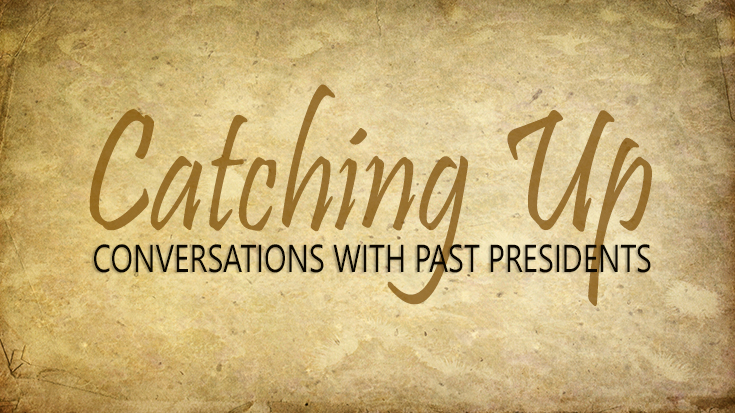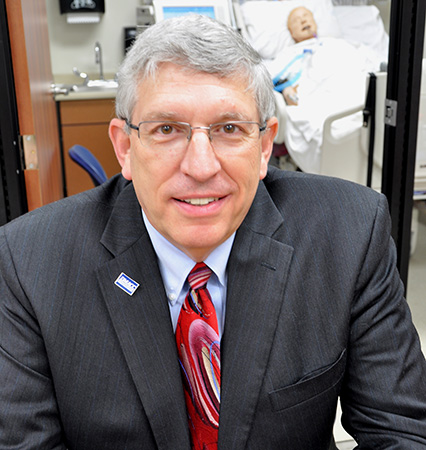

“Attending AARC educational meetings and serving in many different roles provided me the opportunity to make connections, assist students in their learning, and be a better person, husband and father.”
Kerry E. George
This month in our Catching Up series, we’re learning more about Kerry E. George, MEd, RRT-ACCS, FAARC, AARC president 1997.
Describe Your Career Path
George: I began my career as an on-the-job trainee at Freeport Memorial Hospital in Freeport Illinois in the summer of 1973. In the spring of 1974 I attended the accelerated respiratory therapy program at the University of Chicago Hospital and Clinics School. I moved to Madison, WI in in the spring of 1975 and worked at St. Mary’s Medical Center as a staff therapist. I achieved the RRT credential in November of 1975 when I passed the Oral Examination in Anaheim, CA. While working at St. Mary’s, I decided there were some changes in the education of new therapists that were needed. I decided the way to facilitate those changes was to become involved in the education of new respiratory therapists. I moved to Ankeny, IA and became Program Director of the Des Moines Area Community College Respiratory Therapy program in the summer 1977. I am still in that position over 40 years later.
Why did you choose to pursue the President Office?
George: I had the opportunity to serve in the AARC House of Delegates in the early 1980s. Through that involvement, I met several persons who became my professional mentors—Sam Giordano, John Walton, Charlie Brooks and Trudy Watson. As I saw the dedication and professionalism of these individuals, I came to believe I could make a difference in this wonderful profession. I served on the Board of Directors and in several offices prior to deciding to accept the nomination for president. It was not at the time I would have desired, but was at a time when I thought I had something to offer to the profession at a critical time in the evolution of the educational accreditation process.
What was the most memorable experience during your Presidency?
George: I really have to point to two experiences. The first was the opportunity to serve as president during the celebration of 50 years of the AARC in 1997. The other was working with Jimmy Cairo on the development of the Committee on Accreditation for Respiratory Therapy to replace the Joint Commission for Respiratory Therapy Education.
What advice would you give someone interested in pursuing a leadership role in AARC?
George:
- Be an active member of the AARC. This means getting involved on committees and on the board of your chartered affiliate. It is through serving there that you will develop knowledge and know how.
- Find and seek the assistance and advice of mentors you respect. Learn all you can from them and take part in the experiences they are willing to share with you.
- Listen, listen, listen. I learned long ago I do not learn anything new when I am talking.
- Surround yourself with others with more experience and knowledge than you have. You can learn a great deal from them.
- Prepare for any task you undertake. I have seen many times persons serving on boards of directors and other leadership roles who have not prepared in advance for meetings. Reading the materials for a meeting on the plane on the way to the meeting does not provide you the opportunity to research and seek additional information needed to thoughtfully consider decisions that need to be made.
- Focus on the patients who need respiratory care. If we focus on putting the needs of the patients first, we will be doing those things that benefit the profession.
- Choose to be a leader for the right reasons. If someone seeks to be a member of a board or an officer of an organization to further their own career or agenda, they will not serve the organization they seek to lead.
How has your membership in the AARC benefited your career?
George: Attending AARC educational meetings and serving in many different roles provided me the opportunity to make connections, assist students in their learning, and be a better person, husband and father.